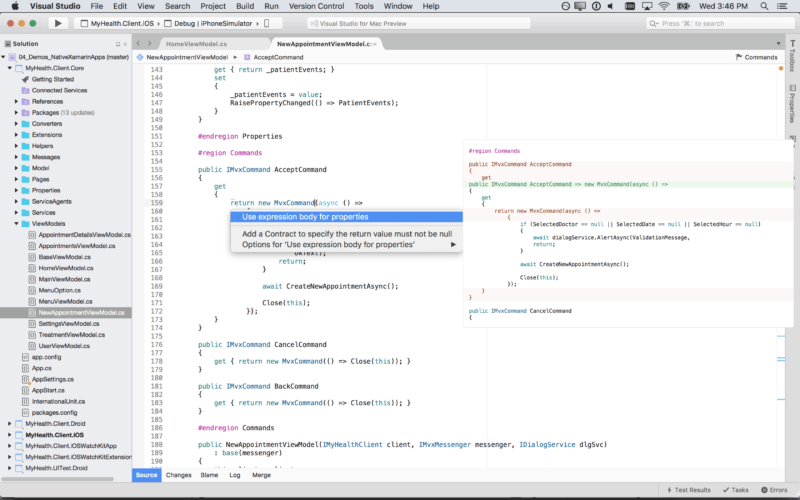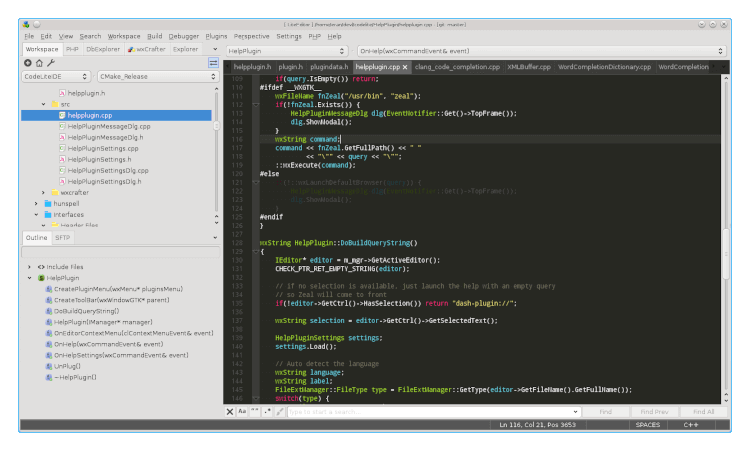GCC, the GNU Compiler Collection - GNU Project - Free Software Foundation (FSF) GCC, the GNU Compiler Collection The GNU Compiler Collection includes front ends for, Objective-C, Ada, and Go, as well as libraries for these languages (libstdc.). GCC was originally written as the compiler for the. The GNU system was developed to be 100% free software, free in the sense that it.
- C Compiler Free Download For Mac Free
- C Compiler Free Download For Mac Mac
- C Compiler Free Download For Mac Windows 10
We strive to provide regular, high quality, which we want to work well on a variety of native and cross targets (including GNU/Linux), and encourage everyone to changes or help GCC. Our sources are readily and freely available via and weekly.
Major decisions about GCC are made by the, guided by the. News released 2018-10-26 C-SKY support 2018-08-17 GCC support for C-SKY V2 processors has been added. This back end was contributed by C-SKY Microsystems and Mentor Graphics. 2018-07-29 Held in Manchester, September 7-9 2018 released 2018-07-26 released 2018-05-02 released 2018-01-25 released 2017-10-10 released 2017-08-14 released 2017-07-04 2017-05-02 Held in Prague, September 8-10 2017 Weekly snapshots now use xz compression 2017-05-24.instead of bzip2.
C Compiler Free Download For Mac Free
Out of the box, OS X Lion doesn’t have the command line C compilers. Plus, Apple has once again changed the way you install those compilers in /usr/bin. Here’s how to do it with the latest Xcode and Lion.
Back in August, right after OS X 10.7, Lion, shipped, I wrote about how a new installation does not have the C compilers in the expected place, /usr/bin. This article, “” provided all the background. Recently, professor Ulf von Barth of Lund University in Sweden alerted me to the fact that the mechanism has changed yet again. In the article linked above, I explained that all you had to do was download and install Apple’s Xcode IDE, and everything would be as expected. Now, you have to do a little more.
But before I proceed, you should go back and read that article for reference on the C compilers, gcc, llvm, and all that jazz. Motivation There may be good reasons not to have a C compiler sitting around an average user’s Mac, ready to stir up trouble if accessed by malware. Thats why it’s not in the Mac by default. On the other hand, you may be taking a C class and want to use a C compiler (gcc now points to llvm) from the command line. Or you may be an administrator, and you want the C compiler to be available in a lab setting.
Or you’re a researcher, and you don’t use Xcode for scientific computing. Or it may just be for show. Some day, an IT admin will come up to you and question you about the Mac, and you proudly announce that it’s based on (BSD) UNIX. This Linux guru will open the command line, type “cd /usr/bin;./gcc -v” and then snort. Nothing there. It’s not real UNIX!
For whatever reason you may have, here’s what you need to do nowadays. Note that, unlike before, when everything was free, you will need to be a registered Mac developer. Download Xcode, now at version 4.3.2, just as before, from the Mac App Store. Finder - Apple - App Store It’s always been free and still is.
Launch the Xcode.app that was downloaded to /Applications. If you stop there, you’ll find that, unlike before, the command line compilers are not installed by default. You can go hunting for them, and you’ll it all in: /Applications/Xcode.app/Contents/Developer/usr/bin Oops. Gcc/llvm now buried /Applications for use by Xcode Phew!


That won’t do you any good unless you intend to use Xcode exclusively. Very likely, all your conventional Make scripts won’t know where to find the C compilers (and linker and assembler) now, and you wouldn’t want to modify them anyway. So setting up links to the new location would be messy and likely will not work, creating new headaches. What you need is everything back in /usr/bin like before.

C Compiler Free Download For Mac Mac
After launching Xcode, go to Preferences and select the Downloads pane, then Components. There, in the list of candidate items will be the Command line tools. Click “Install.” Xcode’s downloads 5. You’ll be prompted for your developer credentials then you’ll see the classic progress bar. When that’s done, the C compilers will all be in /usr/bin, as desired. To prove that all’s well, open a terminal window, cd to /usr bin, and take a look. All is well again in /usr/bin It’s a shame we have to go through all that these days, but I can see how Apple feels that the majority of users don’t need these tools, and those who do will find out how to get them.
C Compiler Free Download For Mac Windows 10
I suppose you could call that a subordinate claws. My thanks to Dr. Ulf von Barth of Lund University in Sweden and Dr. Gaurav Khanna, Physics Dept., the University of Massachussetts for their assistance with this article.